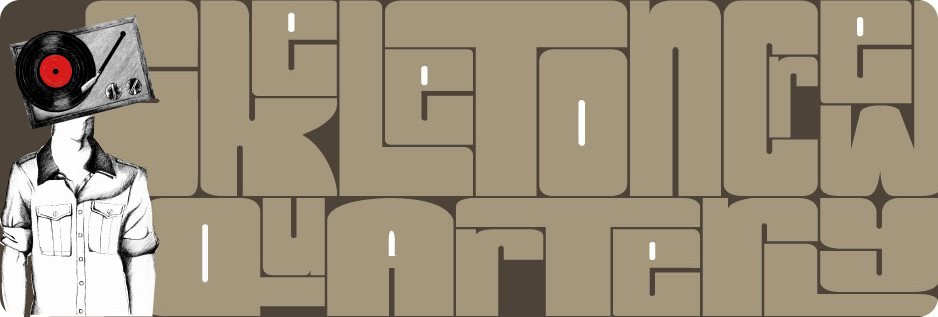
Patients
Patients
Self-Released.
SCQ Rating: 78%
Music in the internet age carries the same criticisms implicit to the wild west, namely because everyone involved – musicians, distributors, labels, sellers, buyers and stealers – each suffer or prosper from a system in chaos. Word of mouth, once a term to reflect a slow, grassroots-style of hype, now moves like a cloud of locusts, devouring trends and bands in record time. In the same way Da Vinci’s Mona Lisa lost its aura at the helm of a thousand fridge magnets, cheap print-outs and goofy commercial parodies, albums have similarly lost their luster, reduced to an invisible file that is stolen, copied and traded among friends. Despite these criticisms that understandably argue the commodification of music, the internet has also presented artists with opportunities to create events. Few of us (locusts and listeners alike) could forget Radiohead’s grand In Rainbows strategy yet each year holds a few of these unique surprises (recall NIN’s The Slip give-away or Fog’s recent purging of five new albums online). For 2009, I can’t imagine a more inventive or rewarding event than the Patients Project curated by Electric President/Radical Face guru Ben Cooper; a trade-off between musician and fan that resulted in fans receiving an ultra-limited compilation of unheard tunes and Cooper getting to know his fanbase on a more intimate level. For those interested in details and final results (as the project is now closed), check out his website.
Although I missed out on the Patients Project’s first wave (which included one of 100 uber-limited discs packaged in homemade fashion by Cooper himself), I participated in the second wave and was awarded Patients’ eleven tracks in MP3 format. My natural instinct concerning anything free is to recall that modern fable “you get what you pay for”, yet from the opening strums of ‘Tall Tale No. 5’, any premature thoughts of throwaway tracks and subpar b-sides simply dissipated from my mind. The song acts as a bildungsroman for Cooper and his various shadows, narrating the birth and emotional development of a storyteller who, I suspect, details events both fictional and autobiographical. The distinction is inconsequential given the quality of songwriting throughout but it’s nearly impossible to ignore Cooper’s numerous guises present, moving effortlessly from the complex dance rhythms of ‘Mind Ur Manners’ or the front-porch folk of ‘Sad Business’ to the stuttering found-sound bridge of ‘Mathematics’. The freedom of such a project also allows experiments like ‘Body Song’ (composed with but one instrument – the human body) and a gentle cover of a Robin Hood tune (yah, Disney’s - no Kevin Costner meets Bryan Adams reminiscing here…). That such variety never becomes overwhelming nor steals the thunder of the songs themselves proves how seamlessly Cooper wears these guises, making it a more fluid album than it has any right to be.
Part of Patients’ allure is its constant shift between styles and identity, which should come as no surprise to those familiar with Cooper’s double-shift between Electric President and Radical Face. The other half of discovering Patients is finding those tracks that are simply too good to not belong on an official release, and thusly trying to figure out where they should settle. ‘The Coldest Hand’ has the atmosphere necessary to be a b-side of Sleep Well, while ‘The Voice of Our Age’ could belong on a more extroverted, big-screen Radical Face project. Then there’s ‘If You Come Back to Haunt Me’, an explosive finale that despite hauling many Cooper trademarks cannot fit within any of his day-jobs. Is it a clue of things to come? One can only hope…
Simply put, there is no black or white regarding music in the internet era; the state of record sales, promotional efforts and downloading are all lost in gray areas of debate. And while I’m against the downloading of music whereby the artist responsible receives no recognition or compensation, I encourage anyone interested to seek out these songs online. This Patients project seems far more of a closet-cleansing than a money-grab (after all, he did give it out for free), so I urge anyone interested to ask around. For fans of Electric President or Radical Face, this is a must-have… and for Cooper-newbies, this is as good a place to start as any.














